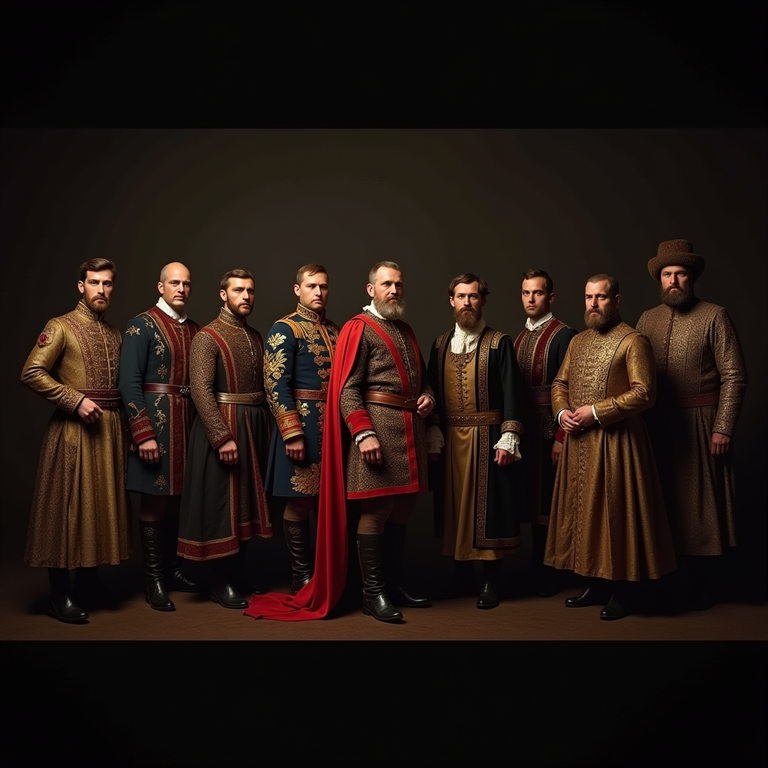The Polish-Lithuanian Commonwealth was a unique political entity that shaped the principles of governance in a significantly different way compared to other political centers in Europe (and the world). One of the most important features of this country (Sarmatia) was its extensive decentralization and dispersal of power (which is very similar to principals of Hive blokchain). One manifestation of these characteristics was the military leadership, which rested not only with the King but also with the Grand Crown and Lithuanian Hetmans. The Grand Crown Hetman was one of the two most important military offices in the Polish-Lithuanian Commonwealth, spanning from the 15th to the 18th century, established by King Alexander Jagiellon. This kind of military leadership allowed kings to take care less about armies and security flaws on the distant frontiers. Commonwealth was a state with almost neverending threats on most of their borders, and when you have 1milion km2 with very long border to secure... well you cant be everywhere. So, Sarmatia as a country, as a culture decided to put trust in individuals with great responsibilities, unlike rest of the Europe, where we had in this time ongoing centralization with Absolutism at the end of this road.
So, the main responsibilities of the Crown Hetman was:
- Serving as the highest commander of the land forces of the Kingdom of Poland. He had supreme command over all military units located within the Crown of the Kingdom of Poland (but not those in the Grand Duchy of Lithuania and not the pospolite ruszenie). Consequently, he appointed the commanders of the units.
- Being responsible for the organization, equipment, and training of military units. It was his duty to ensure that the army was fully prepared for armed operations. Through so-called "letters of agreement," he supervised recruitment conducted by lower-level commanders.
- Providing advisory functions to the king and the Senate on military matters, as well as foreign affairs.
- Overseeing military judiciary and maintaining discipline in the army, adjudicating cases of war crimes or desertion.
- Participating in international negotiations concerning ceasefires, truces, or peace treaties, representing the military interests of the Commonwealth (sometimes not always in accordance with the king's will). Moreover, he had the right to maintain residents, e.g., in Istanbul, and to receive envoys from Turkey, the Crimean Khanate, the Danubian principalities, and the Zaporozhian Sich.
Crucially, starting from Jan Zamoyski, this office was held for life. The position of such an official was, therefore, very strong, even in relation to the king. Unfortunately, the issue of the hetman's "salary" was poorly regulated (he paid himself), which led to significant abuses... Below is the list of all Crown Hetmans:
- Mikołaj Kamieniecki (1503-1515)
- Mikołaj Firlej (1520-1526)
- Jan Amor Tarnowski (1527-1559)
- Mikołaj Sieniawski (1561-1569)
- Jerzy Jazłowiecki (1569-1575)
- Mikołaj Mielecki (1575-1579)
- Jan Zamoyski (1581-1605)
- Stanisław Żółkiewski (1613-1620)
- Stanisław Koniecpolski (1625-1646)
- Mikołaj Potocki (1646-1651)
- Marcin Kalinowski (1652)
- Stanisław "Rewera" Potocki (1654-1667)
- Jerzy Sebastian Lubomirski (1668)
- Jan Sobieski (1668-1674)
- Dymitr Jerzy Wiśniowiecki (1676-1682)
- Stanisław Jabłonowski (1682-1702)
- Feliks Kazimierz Potocki (1702)
- Hieronim Augustyn Lubomirski (1702-1706)
- Adam Mikołaj Sieniawski (1706-1726)
- Stanisław Mateusz Rzewuski (1726-1728)
- Józef Potocki (1735-1752)
- Jan Klemens Branicki (1752-1771)
- Wacław Rzewuski (1773-1774)
- Franciszek Ksawery Branicki (1774-1793)
- Piotr Ożarowski (1793-1794)
This post marks the beginning of a series in which each of the above-mentioned Hetmans will have their own entry. What do you think about such independence of the "minister of defense" and the dispersal of power at the national level? Was it positive or negative? Could we take example from this policy or we shouldn't?

